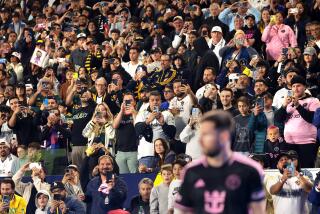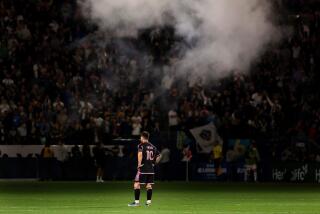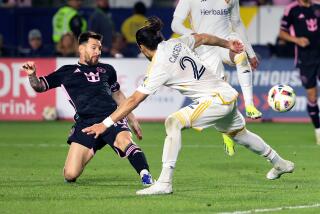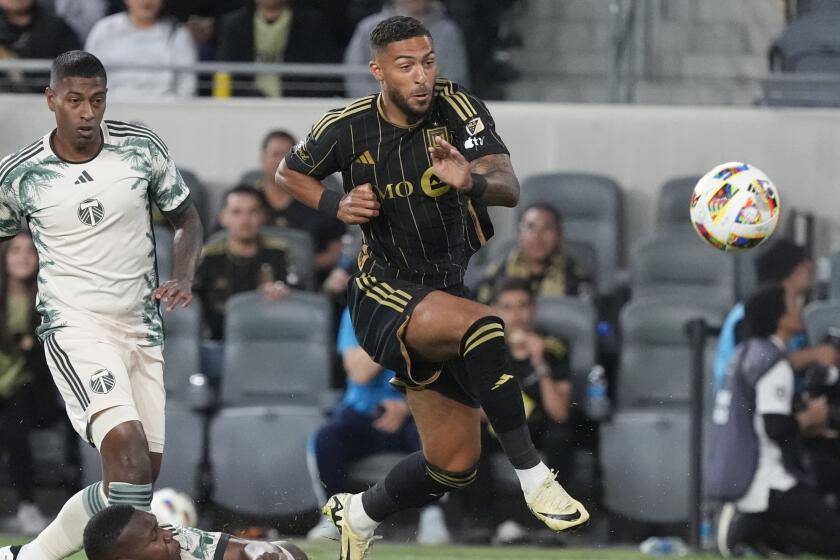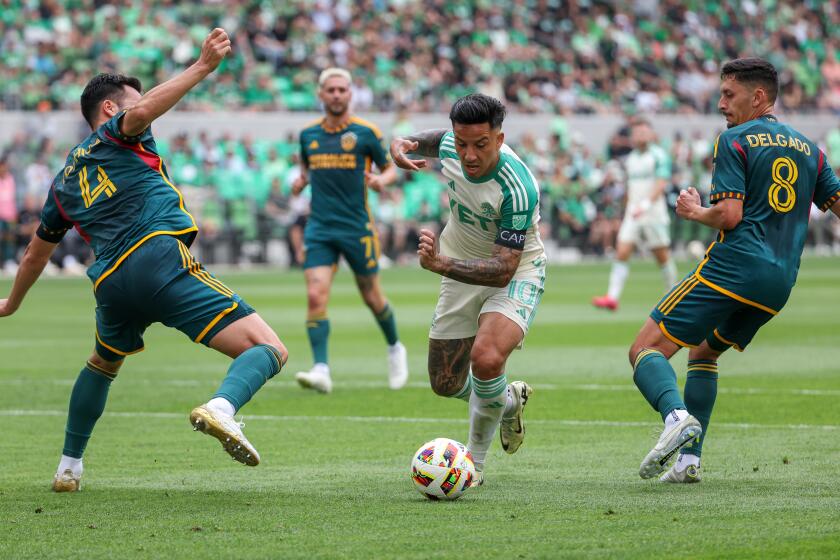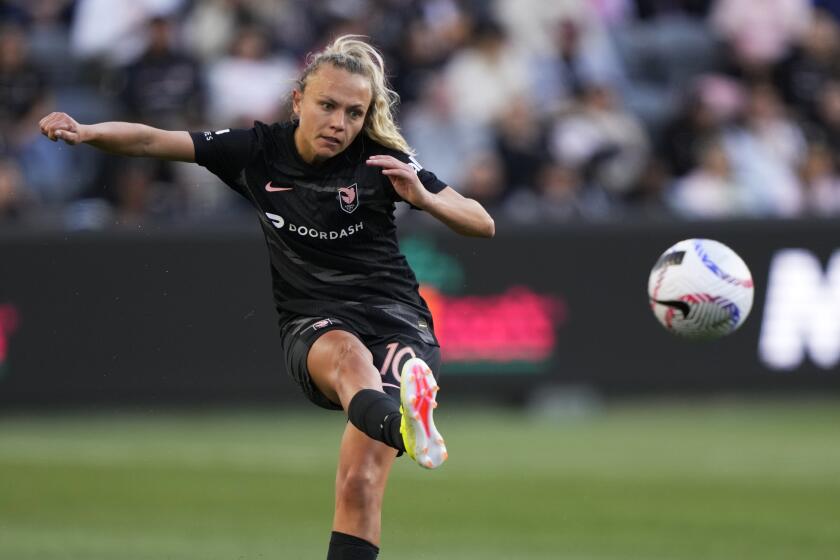Stars could collide again in Champions League final
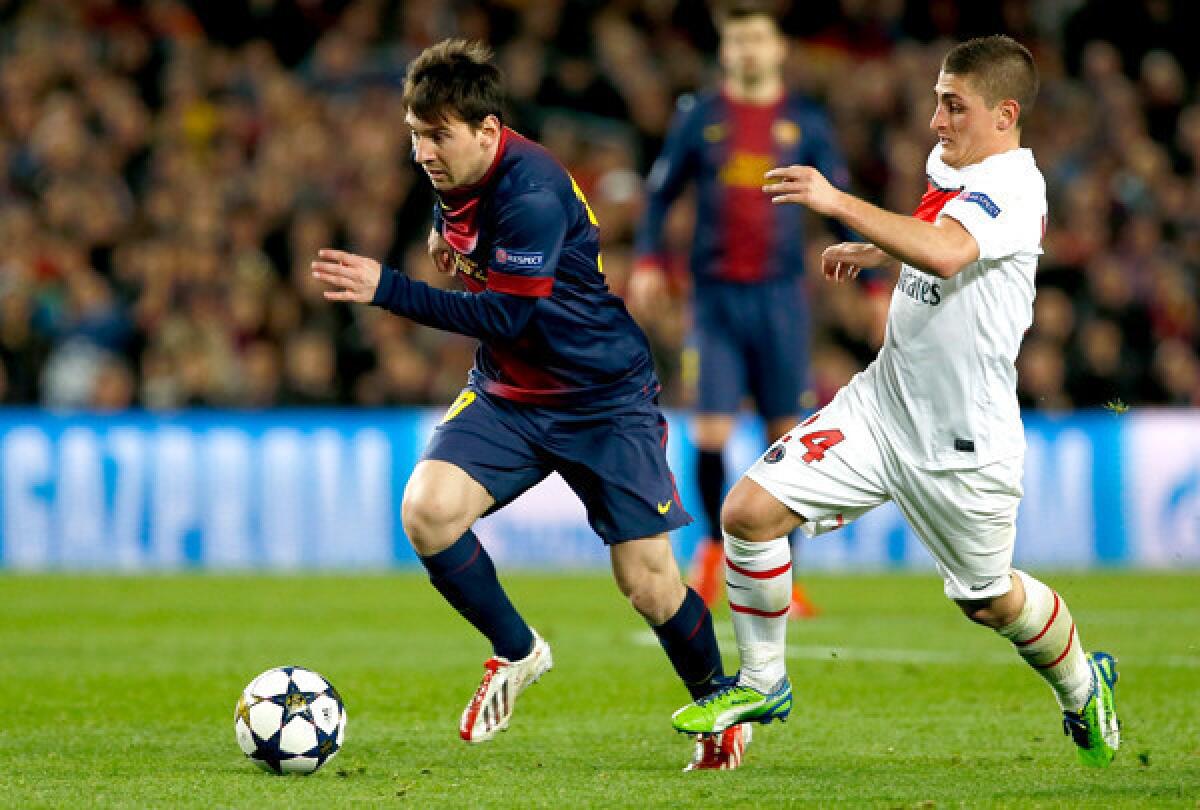
Maybe it was a passing of the torch. Or maybe it was just two ships passing in the night.
Either way, you can be sure Cristiano Ronaldo is well aware of the turn his career has taken since he and Lionel Messi tangled in the 2009 UEFA Champions League final.
Ronaldo, then the reigning world player of the year, came into the match having led Manchester United to three consecutive Premier League crowns and the previous year’s Champions League title. Messi, meanwhile, was finishing his third season as a first-choice forward for Barcelona.
But on that night in Rome, Messi’s second-half header closed out a 2-0 Barcelona win in what would prove to be Ronaldo’s last game for Man U.
For Messi, now 25, that game ignited a run that saw the Argentine win a record four straight player-of-the-year awards. Ronaldo, 28, who jumped to Real Madrid a month later, finished second in the voting in three of those years.
Messi led La Liga in goals three of the next four years; Ronaldo finished second twice.
Messi and Barcelona went on to win consecutive La Liga titles — Ronaldo and Real Madrid were the runners-up both times — as well as another Champions League crown, while eliminating Ronaldo and Real Madrid in the semifinals along the way.
So there are multiple scores to settle when both men — and their teams — return to one of soccer’s biggest stages this week. Barcelona meets Bundesliga winner Bayern Munich in the first leg of a two-match Champions League semifinal Tuesday, a day before Real Madrid and Borussia Dortmund begin their semifinal series.
The two German teams pose formidable roadblocks to a Messi-Ronaldo rematch in the Champions League final next month. But it’s a rematch Ronaldo has been spoiling for since the most recent FIFA awards gala in January, when he wore an expression that appeared to be a mix of anger and despair when Messi was called up to accept his fourth Ballon d’Or.
Perhaps he should have thanked Messi instead. After all, every great athlete needs a rival to take him to a higher level. Chamberlain had Russell, Nicklaus had Palmer, even Rocky Balboa had Clubber Lang.
So it is with Ronaldo, who went into the weekend with a remarkable 117 goals in the last three La Liga seasons — nearly double his best three-year total with Man U.
Messi, of course, had seven more.
But theirs is not the only rivalry drawn to a boil by the Champions League semifinals.
Bayern Manager Jupp Heynckes, for example, is especially motivated to beat Barcelona. Although he took Bayern to the Champions League final against Chelsea last year, losing on penalty kicks, and led his team to its 23rd Bundesliga crown two weeks ago, Heynckes will be out of work when his two-year contract expires June 30.
His replacement? Former Barcelona coach Pep Guardiola.
So when a reporter asked Heynckes earlier this month if he planned to ask Guardiola for advice in preparing for Barcelona, his ire was obvious.
“Please respect me and my work,” he snapped. “I’ve never consulted anyone or asked for advice. I do not need anyone to study an opponent.”
Heynckes was much kinder when speaking of Messi.
“He is a phenomenon. He is in the league of Zinedine Zidane, Diego Maradona, Pele and Johan Cruyff,” he told the Associated Press on Wednesday. “Anyone who scores 50 goals in a season is extraterrestrial.”
The Bayern-Barcelona match won’t offer much in the way of contrast, because both teams play a similar, ball-control style — and they do it better than any other two club teams in the world. Barca, in fact, has bested its opponents in possession in its last 300 consecutive games. And in the current Champions League tournament Barcelona and its talented midfield has controlled the ball for more than 65 minutes a match. Bayern has a 58% possession rate.
The Germans have had an edge on set pieces, though, scoring nearly a third of their 22 Champions League goals from dead-ball situations.
In the other semifinal, Dortmund — at 6-0-4, the only unbeaten team in the tournament — will have a simpler strategy: Stop Ronaldo. The Madrid striker is averaging seven shots a game, more than twice any other player in the tournament, and he has accounted for 11 of Madrid’s 23 goals in 10 matches.
You might even says he’s playing like a man on a mission.
Which, of course, he is.
kevin.baxter@latimes.com
twitter.com/kbaxter11
